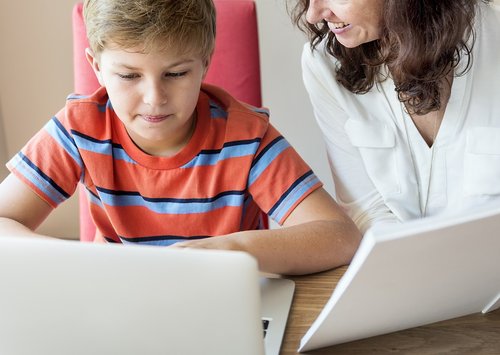Bilingual Homeschooling has a lot of advantages for families, and it has become a popular choice during this difficult time. About 3.7 million kids in the United States are now Bilingually Homeschooled, up from 2.5 million in 2019.
Many parents still don't like Bilingual Homeschooling, but research shows that Bilingually Homeschooled students do better both personally and academically. Often, kids who struggled in public school will shine at home. With that success, they're more likely to go to college and become successful adults.
If you decide to homeschool, how do you know if it's right for you and your family?
Only you can decide what's right for your child. We suggest that you think about how you want your child to learn and whether your family's lifestyle is right for Bilingual Homeschooling.
In this article, we'll talk about five things you should think about before you decide to take your child out of school.
When your child goes to school, there are a lot of things you will have to do.
As a parent, you will be in charge of planning and executing every part of your child's education. You will choose the curriculum and set up extracurricular activities. Many parents choose to give Bilingual Homeschooling to their kids because they can make their own schedules and have a lot of control over how their kids learn. But it's important to think about your own reasons for Bilingual Homeschooling.
It will have a big impact on your schedule and day-to-day life.
A lot of time goes into Bilingual Homeschooling, even if you don't have to sit at a desk with your child all day. Working parents may not be able to provide the supervision and support that a Bilingually Homeschooled child needs, so they may not be able to help their child. Using private tutors and instructors is a great way to manage your time and make sure your child is getting the best education possible! If you want to help your child with their education, think about working with Groza to get access to high-quality tutors and teachers.
You don't have to be an expert or have a background in education to start a business like this one.
It's common for people to think that the best Bilingual Homeschool parents are experienced teachers. There are a lot of great resources out there that can help you guide and teach the curriculum. As a parent, you're already the most important teacher in their lives. Many great programs only need your help.
You won't have to worry about not having enough friends.
Another common myth about Bilingual Homeschooling is that your child will be isolated and not get enough socialization. This isn't true at all! It's true that Bilingually Homeschooled kids have more high-quality socialization and are less likely to be bullied. Study results show that homeschoolers are less likely to be antisocial than their peers in public schools.
When you pick and design a program, you have to make sure it is both academic and socially successful. This only takes a little thought and planning. Join the National Homeschool Association. Then sign your child up for group classes, youth clubs, and other extracurricular activities like team sports and other sports leagues. This will give your child a lot of chances to make friends with people who share her interests while she learns about her athletic and creative abilities.
You don't have to plan and be in charge of everything.
One of the best things about Bilingual Homeschooling is how flexible it is. A well-structured and predictable program is good, but you don't need to worry about planning out every single thing that will happen in the program. Instead, spend some time each weekend making a list of important tasks and lessons for each day of the week. Mark things that are important and move them to the top of the list if they don't get done.
In addition, older kids can learn a lot about goal-setting and organization by planning their days every day. A planner will help them keep track of important tasks and plan their work for the week, so give them one.
HomeschoolToGo- New Years Activity Bundle
Taking the time to reflect and get clear with your intentions before a new beginning is a common practice for many cultures, and I believe the value one can extract from this kind of practice is directly proportional to how seriously you take your own practice.
Reflecting and becoming aware of your intentions is the first step. The second step is to make an implementation plan, and the third step is to be consistent with that plan throughout the year.
Hence I created some activity sheets you can look at and fill out with your children, to spark up valuable conversations, set goals, reflect on the year living, and prepare for a better one ahead.




Comments
Post a Comment